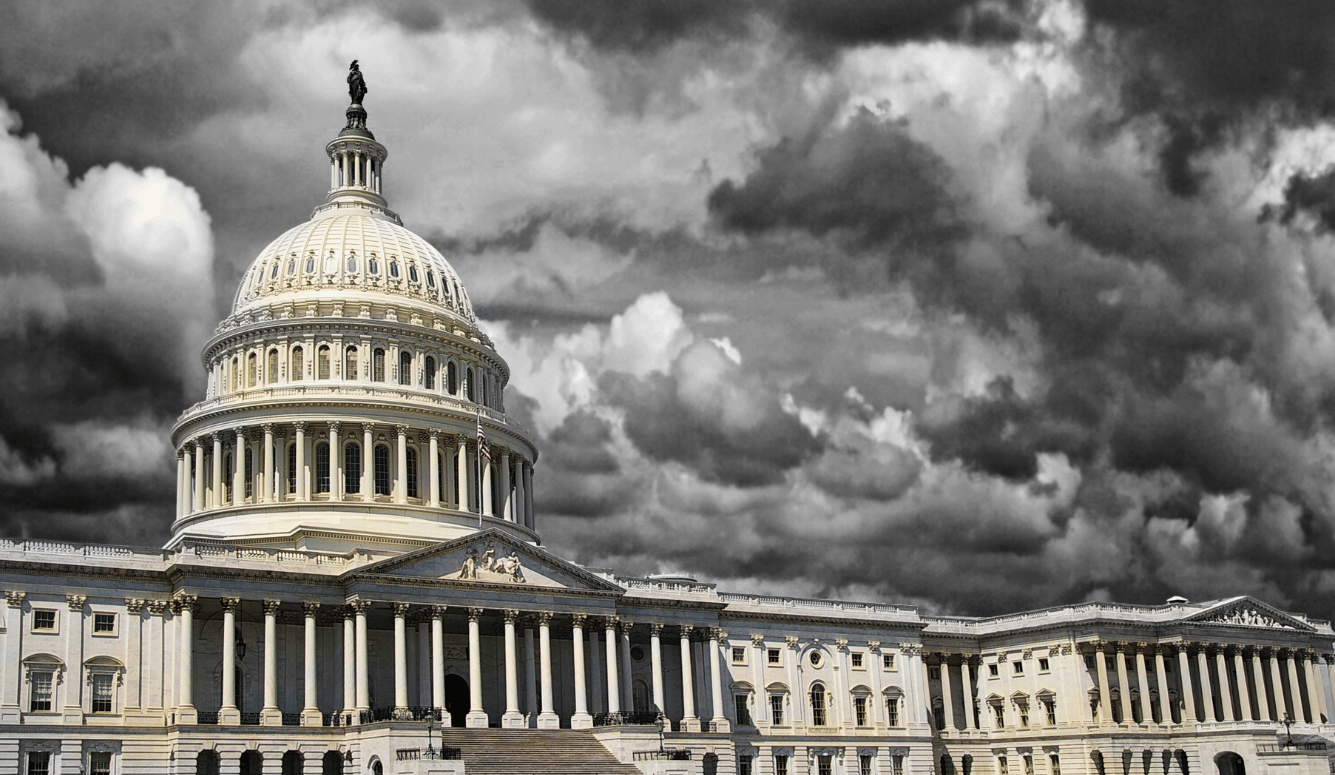Sex
The Ironies of Sex
Young people are still discovering their sexual selves and are often lost when exploring the sexual terrain of someone else’s body and mind.

In “The Problem with Being Cool About Sex,” the Atlantic’s Helen Lewis meditates on the many contradictions inherent in the sexual experience. Among others, Lewis contrasts the victories of women’s sexual liberation to the costs of being objectified and oversexualized, the ongoing friction between our societal condemnation of coercion in all its forms and some women’s desire for sexual domination, and the incompatibility of personal sexual preferences based on race, disability, and biological sex with the egalitarian goal to democratize sexual access for everyone. Lewis assumes that sexuality is largely shaped by societal and cultural forces, whether sexual double standards or pornography. But, in a welcome—if somewhat brief—aside, she questions the malleability of sexual desire in light of its “evolutionary purpose.” Ideological and intellectual commitments notwithstanding, Lewis’s article taps into the reality that sex rests on a bed of contradictions and that our experience of it is inescapably ambivalent.
In previous essays for Quillette, I discussed the evolutionary antecedents of sadomasochism and the relationship between sexual dominance and politics. In what follows, I want to show that sexual contradictions are inevitable because sexual taboos are a necessary component of human sexuality and sexual restraint is inextricable from the pleasures of sex.
Although my argument is compatible with the conservative or religious case for keeping sexuality private, it is also entirely secular. I am not the first to have observed that sexual reticence is as much about protecting sexuality from society as society from sexuality. I do not claim that the enhancement of sexual pleasure is the only function of sexual taboos. Nor am I alone in having made this connection (George Bataille, Michel Foucault, and others have come to similar conclusions). But the need to understand sexuality as an undulating world of hidden desires and repressed passions serves a function that is often neglected in popular discourse. And if we are to lead sexually fulfilled lives, then we have to wrestle with the fact that sexuality is sustained and even inflamed by efforts to restrain it.
The irony of consent
The feminist push to make consent an explicit part of sexual interaction was one of the main policy recommendations stemming from last decade’s focus on sexual assault in higher education. There are some good reasons for encouraging the practice of “affirmative” and “enthusiastic” consent. Young people are still discovering their sexual selves and are often lost when exploring the sexual terrain of someone else’s body and mind. Aside from the issue of coercion, asking for consent may be an effective way for a young person to reduce the anxiety of not knowing whether someone desires them and, if desired, whether sexual overtures are likely to be reciprocated. Indeed, a lot of unnecessary heartache and uncertainty could be reduced if a culture were to normalize explicit discussion of sexual boundaries and desires. But the pushback to affirmative consent policies also speaks to the widespread sentiment, among women and men alike, that much of the fun and pleasure of sexuality would be lost if sex were to be made explicit and predictable. Sex, in other words, would not be as playful or enticing if it did not involve some degree of teasing, testing, and, within limits, trespassing.
The irony of consent speaks to a more general cultural trend that illuminates our unexamined lives. This trend is synonymous with our self-help zeitgeist, where explicit instruction is sought and dispensed about domains of life in which previous generations were left fumbling in the dark. Some self-help is useful, no doubt. Career advice, relationship-saving tips, and even sexual instruction all have their place in our effort to improve human flourishing. The problem is when self-help goes beyond its mandate and starts interfering in domains that are best navigated in a spirit of adventure and improvisation. It is one thing for a couple to discuss their sexual preferences and turn-ons over coffee or during pillow talk. It is another for each partner to always be ready to direct and oversee the sexual labors of the other during intercourse itself, so as to ensure that the right spot is stimulated or the appropriate words uttered. Open communication in the heat of passion is not to everyone’s liking. And one’s ability to find the route to a partner’s sexual satisfaction may be an irreplaceable test of one’s quality and promise as a partner.

The irony of kink
The thunder of the culture war rumbled across the Twittersphere again when the Washington Post published Lauren Rowello’s pointedly-titled article, “Yes, Kink Belongs at Pride. And I Want My Kids to See It.” The usual combatants on each side of the battlefield: the cultural Left with its fierce advocates for openness, tolerance, and awareness, and the cultural Right with its equally fierce defenders of children’s right to maintain their innocence and sexual naivety. As some gay commenters have pointed out, however, kinksters may not want to broadcast their pastimes for the eyes of children, innocent or otherwise.
There is a legitimate discussion to be had about whether the abrupt legal transition from childhood to adulthood always tracks a developing person’s psychological maturity to handle topics on the fringes of human sexuality. Likewise, we should be able to question the wisdom of exposing children to behaviors and practices that they might not be mature enough to understand or contextually frame. But we should not lose sight of the fact that kink, almost by definition, thrives in a world where it is a taboo.
If public displays of sadomasochism, alongside all of their material accoutrements, from ball gags to nipple clamps, are to be rendered as innocuous as a Sesame Street broadcast, what would be left of the taboo that underpins the very excitement that sadomasochism offers to its practitioners? And, as a young person matures sexually, what happens to their sense of guilty pleasure upon discovering that the hidden world of taboo is made sterile by the political forces of sexual tolerance?
Although I am not worried that kink will turn into a family-friendly game of urban dress-up anytime soon, I do wonder whether something valuable is lost by political efforts to take the sense of danger and taboo out of sexuality. Knowing how deeply rooted the human penchant for instituting taboos is, our inventive species will lose no time in finding verboten replacements for the relatively milquetoast kink of today. The only question is how far these replacements will need to go to transgress against our increasingly permissive social and legal norms.
Biocultural underpinnings
In Connections Between Sexuality and Aggression, psychologist Dolf Zillmann posits “excitation transfer” as the mechanism responsible for the mutually reinforcing effects of aggression and sexuality. Excitation transfer refers to the transfer of arousal from one behavioral domain to another. Say a man is angered by someone who cuts him off in traffic. If he comes home and encounters an erotic stimulus, say a pornographic film, his simmering anger ignites his sexual arousal to a greater extent than it would be ignited if he had not been cut off in traffic. Zillmann points to the sympathetic nervous system’s fight-or-flight response as the key mechanism linking aggression to sexuality. Because both aggression and sexual arousal depend on the activation of the sympathetic nervous system, either response can enhance the other. But this enhancement cannot occur without the appropriate environmental stimulus. In the present example, if the man who was cut off in traffic was not exposed to the pornographic film, he would simply be left angry.
Excitation transfer can shed light on the connection between rule-breaking and sexuality more generally. Why is it that voyeurism, exhibitionism, and sadomasochism are such common paraphilias? What all three have in common is that each is associated with the breaking of a taboo (and, sometimes, a criminal law). When a society deems a sexual act a taboo or crime, engaging in it is made risky. With the added risk, however, comes the added excitement of breaking a social norm or law. In this way, the arousal stemming from the breaking of a taboo enhances the arousal of the sexual act itself. At the extreme, such sexual excitement could explain the appeal of gruesome acts of sadistic violence. But even relatively harmless sexual practices, such as consensual kink or sadomasochism, derive part of their appeal from the breaking of some stated or unstated behavioral norm.
Taboos, and the norms from which they are derived, arise for different reasons. Taboos can originate from concerns about health (e.g., the taboo against incest) or they can spring from people’s motivation to control the reproductive lives of others (e.g., the taboo against sex before marriage). Taboos can also be formed out of the random fluctuations and ritualizations of human behavior. Whatever their origin, cultural evolution can graft additional functions onto sexual taboos. Taboos against adultery, for example, can be culturally maintained if they ensure societal stability.
On the other hand, if a particular taboo is capable of enhancing people’s sexual enjoyment, then cultural evolution might preserve the taboo because the breaking of it is reinforced by sexual pleasure. Paradoxically, religious injunctions against the taboo can further perpetuate taboo behavior by rendering it risqué. And if the injunctions are preserved in a holy book, then the enticements of taboo-breaking can be rediscovered in each generation. Art and literature can help to romanticize taboo-breaking behavior and imbue it with unique cultural characteristics. Judeo-Christian injunctions against adultery and books like Madame Bovary and Anna Karenina can enrich the Western adulterous experience, for example. In this way, not only an adulterous couple but also the happily married couple that is in thrall to an adulterous role-playing game, can make use of the taboo to heighten their romantic passions.

The dark side of repression
Ever the lightning rod in today’s culture wars and perennial target of blame for the excesses of postmodernism, Michel Foucault nevertheless recognized the sexual enticements that coincide with sexual repression. Yet, in keeping with his larger critique of power, Foucault also recognized that the pleasure that coincides with repression is not distributed equally across individuals and social classes. In The History of Sexuality, Foucault observed that Victorian psychiatry’s pathologizing of “deviant” sexuality was not without its sexual enticements for the psychiatrists in power. Likewise, in social policy, Malthusian efforts to control population growth, however compassionate and ameliorative in intent, punished the sexual behavior of the underclass while promoting that of the monied elite.
Some respect for sexual taboos is necessary. But Foucault’s warning should be heeded lest we perpetuate the harms that come with having one set of standards for the elite and another for everyone else. The error made by reactionary forces in the past was not the enforcement of taboos per se; it was the selective enforcement of taboos for the impoverished so as to enhance the sexual pleasure of the privileged. Everyone should have a right to sexual pleasure. And everyone should have the right to adhere to a taboo and to enjoy the pleasure of breaking it.






